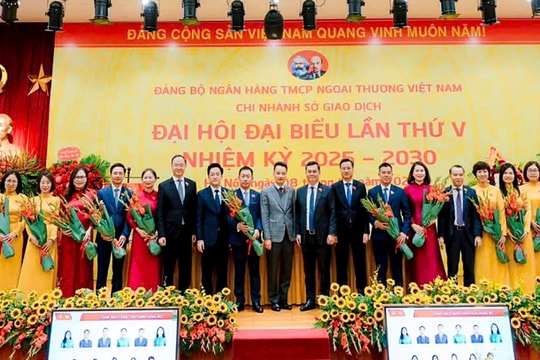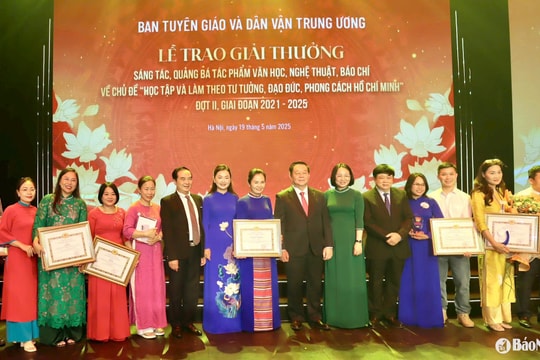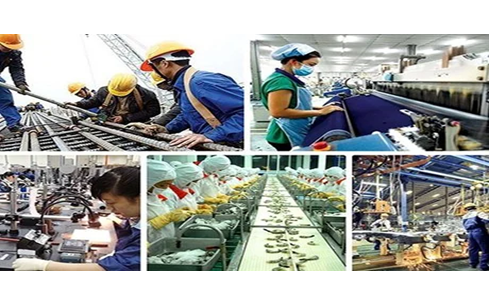What legal corridors are there for journalists to engage in the fight against corruption?
When fighting corruption, journalists must have skills and ethics, as well as a firm grasp of the law. Because the line is very thin, reporters can fall into criminal situations.
The press and media play a huge role in the fight against corruption and waste, not only as a matter of awareness and theory, but also as practice has increasingly proven it.
However, fighting negativity and corruption is a field with many risks and pitfalls that not all journalists are brave enough to engage in this battle, and not all newspapers and journalists are always given the opportunity to participate in the fight against corruption and waste. So what legal framework can journalists and press agencies confidently engage in the fight against corruption and waste?
 |
| The workshop "Press and the fight against corruption and waste" was organized by the Vietnam Journalists Association in coordination with the Standing Committee of the Central Committee of the Vietnam Fatherland Front and Nhan Dan Newspaper (Photo: Nhan Dan) |
In reality, the press has always been at the forefront of the fight against negativity and corruption. Cases related to corruption and negativity have always been discovered and monitored by the press. Many typical cases have been closely followed by the press to report promptly, such as: Vinashin, the case of Nam Cam, Mai Van Dau, Mac Kim Ton, Project 112, Luong Cao Khai, Nguyen Duc Chi, La Thi Kim Oanh, PMU 18... The press has provided initial information to the authorities, investigated and uncovered many cases of corruption and negativity.
Associate Professor, Dr. Nguyen Van Dung - Head of the Faculty of Journalism, Academy of Journalism and Communication said: corruption is becoming more and more complicated with an increasingly large scale, increasingly widespread scope, and increasingly rampant forms of expression with increasingly tight and systematic collusion of interest groups.
From his research, Associate Professor, Doctor Nguyen Van Dung pointed out: Due to the nature of journalists' activities in the fight against negativity and corruption, which are often "single-line" and "independent" operations, there is no more effective way than equipping journalists with truly professional knowledge and skills.
“There should be strategies and solutions to develop investigative journalism resources to fight corruption and negativity, including in training, coaching, knowledge and skills. Build an investigative journalism club, have lawyers regularly provide them with knowledge and methods in the investigation process, and work to avoid risks. A special anti-corruption investigation fund should be established to support journalists who have occupational accidents. The Vietnam Journalists Association needs to urgently require each editorial office to have its own code of ethics. Because only the editorial office can best control the relationship between journalists during their work,” Associate Professor, Dr. Nguyen Van Dung commented.
According to Article 9 of the Law on Anti-Corruption, press agencies have the responsibility to participate in anti-corruption; cooperate with competent agencies, organizations and individuals in anti-corruption; when reporting news, they must ensure accuracy, honesty and objectivity and must be responsible for the content of the information reported.
However, journalist Phung Suong, Deputy Editor-in-Chief of Tien Phong newspaper, said that fighting negativity and corruption is a field with many risks and pitfalls that not all journalists are brave enough to embark on this front. Therefore, it is necessary to create a good legal corridor so that journalists and press agencies can confidently embark on it. Soon, sanctions for not responding to the press according to the law should be added, especially in cases with signs of violations, there should be sanctions for providing objective and timely information. At the same time, considering journalists as soldiers in the anti-corruption front must ensure trust in that front.
Journalist Phung Suong suggested: “Amend the provisions of the law in the direction that only the Chief Justice of the Supreme People's Court and the Chief Prosecutor of the Supreme People's Procuracy have the right to request the press to provide information and sources, not the provincial level as is currently the case. Otherwise, journalists will have to take all the blame on themselves to protect the sources of information as is often happening now. When there are incidents of assault on reporters and journalists, agencies and organizations such as the Vietnam Fatherland Front, the Vietnam Journalists Association, the Ministry of Information and Communications, the Central Propaganda Department, press management agencies... need to proactively intervene to protect journalists and request competent agencies to strictly handle violators...”.
In recent times, when performing their functions, providing information and reporting on the proceedings in corruption cases, many journalists have faced legal prohibitions. According to Lawyer Phan Trung Hoai, Vice President of the Vietnam Bar Federation, when fighting corruption, journalists face many risks because corrupt subjects have power and overlapping interests.
Therefore, when fighting corruption, journalists, in addition to skills and ethics, must have a firm grasp of the law, especially Article 25 of the Press Law which stipulates what journalists are allowed to do and Article 9 which stipulates what is prohibited. Because the line is very fragile, reporters who are fighting against corruption may fall into crime.
Lawyer Phan Trung Hoai noted: “There are three prohibited points that journalists often face risks in the course of their work: First, revealing state secrets, private secrets, and providing truthful information. Second, it is important to convict when the court has not yet issued a verdict. I think that, in the process of building on a legal foundation, each journalist and association needs to pay attention to equipping reporters with legal knowledge, in addition to cultivating professional skills and journalistic ethics. To do this, the Journalists Association plays an important role.”
In order for the press to play its role in the fight against corruption and waste, according to many experts, it is necessary to soon research, amend and supplement regulations on protecting operations and journalists while on duty, creating a good legal corridor for journalists and press agencies to feel secure in their work. In addition, there should be sanctions for not responding to the press according to the law, especially in cases with signs of violations, there should be sanctions for providing objective and timely information.
For press agencies, the Vietnam Journalists Association needs to organize training courses on the field of fighting negativity, corruption, waste, improving legal understanding in performing duties and especially improving operational skills to ensure accuracy and avoid risks when fighting corruption and negativity./.
According to VOV.VN
| RELATED NEWS |
|---|

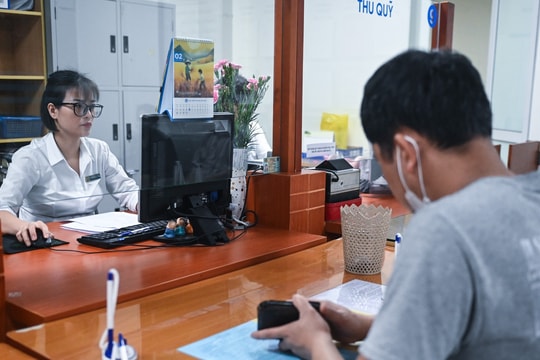

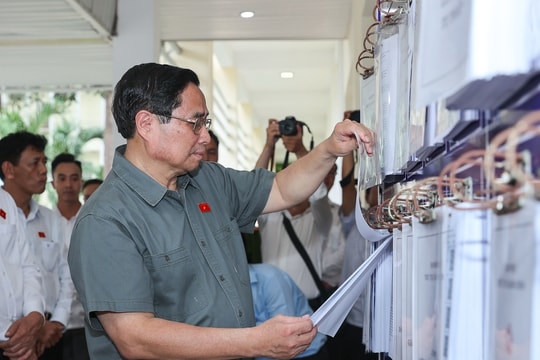
.jpg)
